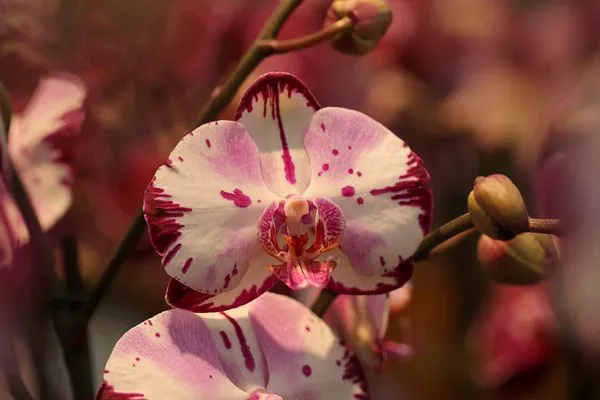Choosing the Most Appropriate Flowers for a Funeral: A Guide to Expressing Sympathy and Comfort
The tradition of adorning funerals with flowers dates back centuries, transcending cultural and religious boundaries. Flowers have long been recognized as a symbol of sympathy, love, and respect, making them an integral part of the mourning process. Selecting the right flowers for a funeral is a delicate task that requires consideration of various factors, including the deceased’s personality, cultural customs, and the sentiments of the bereaved. In this guide, we will explore the best flowers for a funeral, offering insights into their symbolic meanings and cultural significance.
The Significance of Funeral Flowers
Funeral flowers hold profound symbolic meanings, each variety carrying a unique message of condolences and support. They are not merely decorative elements; they convey emotions and offer solace to grieving families. The choice of flowers can communicate a range of sentiments, from empathy and remembrance to the celebration of a life well-lived.
Roses: A Timeless Expression of Love
Roses are synonymous with love and beauty, and they hold an enduring place in funeral flower arrangements. The white rose, in particular, symbolizes purity and innocence, making it a fitting choice to express respect and sympathy. Red roses, often associated with passion, can be chosen to honor the vitality and love the departed person brought into their loved ones’ lives.
Lilies: A Symbol of Restoration and Peace
Lilies are frequently chosen for funeral displays due to their elegant appearance and profound symbolism. The white lily, with its association with the Virgin Mary and the restoration of innocence, represents the return of the soul to a state of tranquility. These flowers are often used to honor the departed’s soul and offer comfort to the bereaved.
Chrysanthemums: A Symbol of Mourning
Chrysanthemums have different meanings in various cultures. In many Asian societies, these flowers are a traditional symbol of mourning and are commonly used in funeral arrangements. In Europe, chrysanthemums are often associated with grief and are reserved for memorial services. While chrysanthemums are an elegant choice, it’s essential to be aware of cultural sensitivities and preferences .
Orchids: Uniqueness and Enduring Love
Orchids stand out for their exceptional beauty and diverse symbolism. They represent eternal love, strength, and a continuation of the bond that transcends physical presence. Orchids’ striking appearance makes them a symbol of refinement and luxury, reflecting the unique qualities of the person being remembered.
Carnations: Honoring a Life Well-Lived
Carnations are versatile flowers that hold a range of meanings depending on their color. White carnations symbolize innocence and pure love, while pink ones convey remembrance and gratitude. Red carnations can signify admiration and affection, making them a thoughtful choice to honor the legacy of the departed and the impact they had on the lives they touched.
Gladioli: Strength in Adversity
Gladioli are known for their tall, imposing spikes of flowers and their association with strength and integrity. These blooms can be a powerful way to honor someone who faced challenges with courage and resilience. The gladiolus flower conveys a message of moral integrity and infuses the memorial with a sense of honor and admiration.
Hydrangeas: Understanding and Heartfelt Emotions
Hydrangeas come in a range of colors, each carrying its significance. White hydrangeas symbolize understanding and heartfelt emotions, making them a suitable choice to express condolences. These flowers can convey the understanding of grief and the desire to offer comfort and support during a difficult time.
Forget-Me-Nots: Cherished Memories
Forget-Me-Nots hold a poignant significance in the context of funeral flowers. These delicate blue blossoms symbolize everlasting love, memories, and connections that remain unbroken even after death. Including Forget-Me-Nots in a funeral arrangement can be a touching way to assure the bereaved that their loved one will always be remembered.
Choosing Flowers Based on Cultural Sensitivities
It’s essential to consider the cultural background and religious beliefs of the deceased and their family when selecting funeral flowers. Different cultures have varying traditions and symbolism associated with flowers. For example, white flowers are often used in Western cultures to symbolize purity and peace, while in some Asian cultures, white flowers are associated with death and are used exclusively for funerals. Red flowers, typically associated with love and vitality, may not be suitable for all cultures due to their vibrancy and celebratory connotations.
Personalizing Funeral Flower Arrangements
While understanding the symbolic meanings of various flowers is crucial, personalizing the arrangement is equally important. Consider the deceased person’s favorite flowers, colors, and hobbies when selecting the right blooms. Creating a unique arrangement that reflects their personality and interests can provide additional comfort to the grieving family and friends.
In conclusion
selecting the best flowers for a funeral involves a thoughtful consideration of the deceased’s personality, cultural customs, and the emotions of the bereaved. Roses, lilies, carnations, chrysanthemums, orchids, gladioli, hydrangeas, forget-me-nots, and many other flowers hold profound symbolic meanings that can convey a range of sentiments, from love and admiration to sympathy and remembrance. By understanding the significance of these flowers and their cultural connotations, we can offer a meaningful and comforting tribute to the departed while providing solace to those who are mourning.


